Principal's Message
International Women’s Day
It was a pleasure to host some of our Alumnae on International Women’s Day, and to celebrate the many more who shared their various post-school pathways with us. These pathways are many and varied and include – Sports Management and Training, Pharmacy, Performing Arts, Journalism, Fashion Design, Pastoral Ministry, Executive Management, Allied Health, Business Ownership, Finance and Business Analysis, Accounting, Scientific and Medical Research, Law, Education, Human Resources, Medicine and Nursing, Media and Marketing, Environment and Sustainability, Writing, Aviation, Information Technology, Law Enforcement, and the list goes on.
Across every field you can imagine, women educated in the tradition of the Sisters of Charity and Mary Aikenhead Ministries, bring not only their knowledge and skills, but a heart that has been formed and attuned to service and vocation in God’s name. In my address at our IWD Assembly, I impressed upon our students the legacy they have inherited through their Mary Aikenhead Ministries education.
Let’s go back to the Sisters. One author writes of the sisters in the 19th century “women who achieved much because they dared greatly. They were among the signal achievers of the nineteenth century. Feminist historians sometimes fail to see that the convent offered women of that time rare opportunities to head complex enterprises such as hospitals and schools. These women were among the great entrepreneurs of that day and their monuments survive to this day.”
We are the inheritors of the story and the legacy of an extraordinary group of Iconic women whose spirit lingers on in this place that nurtures and sustains us today. All of us here follow in their footsteps. All of us, you, have a responsibility to that legacy and to the generations of women who will come after us. We have the resources and the access to education to find ourselves places in politics, policy, government, influence and advocacy where we can be the agitators for equity, and a voice of justice for all.
Pilgrimage to Hobart
On March 9 and 10, Lance Jilbert, Head of Faith and Mission, and myself, journeyed with pilgrims from other Mary Aikenhead Ministries to Hobart for two days to immerse ourselves in the story of the Sisters in Tasmania. This story is characterised by courage, endeavour, innovation, entrepreneurship, persistence and love. In the face of harsh conditions facing the female convicts, the Sisters brought hope, solace and comfort. They were there for the lost, lonely and unloved, and were fiercely determined to make difference. This is the legacy that we inherit as we accept the responsibility to continue our work in their name. The following extract is from Ministry of Love, the story of the Sisters of Charity (Danielle Achikian, 2018).
Mary Aikenhead began her work, starting with a school and a women’s refuge, all the while visiting people who were sick and suffering in their homes. She was invited to Kilmainham Prison in Dublin to visit women prisoners including those sentenced to execution.
At the request of Bishop Polding in Australia, five Sisters of Charity volunteered to travel to the penal colony in 1838. This was the first community to be established outside Ireland…
The history of the Religious Sisters of Charity is not without difficulty and challenge, conflict and struggles. It is a history that is very human…
Helping Girls Regain Their Confidence and Motivation
The following article appeared in my inbox on International Women’s Day. Andrew Fuller is a well-known and regarded adolescent psychologist, and in this article he highlights some specific ways that we, parents and educators, can help our girls recover from the effects of the pandemic and extended lockdowns.
Helping Girls Regain Their Confidence and Motivation
Andrew Fuller
While the pandemic years have challenged us all, the effects have been especially severe for girls and young women. They are the most likely to experience the ‘disorders of distress’- anxiety and depression and for some, self- harm, and body insecurity.
I want to combine the conversations I have been having in my therapy room with girls and young women with recent research to start a conversation about creating antidotes.
Of course, these issues can also affect boys and do not apply to all girls or to all young women. Nevertheless, discussing ways to help our girls and young women recover after a tough time is needed.
Oxytocin
Extended lock downs disrupted the social networks and support of girls and young women. Replacing face to face interactions with an online version did not work for many. In our usual face to face, conversational world we are able to ‘read’ people more accurately and also use our interactions to soothe ourselves while calming each other’s fears and worries. Humans are built to co-regulate.
One antidote to this is have girls and young women ‘synch and link’ with one another. Learning how to re-regulate after times of dys-regulation is the basis of stress management and recovery. For many, the answer to high levels of stress is not individual support, it is social support and activities with others.
Conversational Impoverishment
During the pandemic years, gamers could discuss triumphs, strategies, and challenges. People who didn’t play computer games as much could discuss… er… Netflix?
Much of the conversational fodder for girls and young women is their shared experiences. Having felt/ done/ endured similar events, bonds and highlights the similarities between girls and young women. When there are less shared experiences, it leaves some girls and young women feeling isolated and unvalidated. This increases feelings of agitation and stress. Some feel abandoned and left out.
Distorted Reflections
Viewing your own image on screen during extended on-line sessions does not do many of us great favours. For young women, it has left many of them overly self-conscious and hyper- critical. Levels of body image issues and nutritional restriction have escalated. If you restrict food intake too much, you increase cortisol, the stress hormone. This lessens the capacity for creativity and flexible thinking.
The enhanced degree of self-scrutiny has been worsened by negative comments about appearance from others. The formation of a deeper sense of identity is part of knowing yourself and knowing the contribution you can make. To assume that only your physical attractiveness counts, diminishes us all.
Perfectionism and Idealism
The internet lies to us all, but it reserves the most toxic lies for women. It allows for the fast sharing of information but with it comes the spreading of poisonous ideas. One of the most toxic ideas is that you are never ‘enough’.
One lie is that somewhere in the inaccessible world of social media exists the perfect life with the best boy or girlfriends who wear wonder- fully stylish fashion, are always glamourous and thin and always say or do exactly the right thing.
Happiness is not just about many times you smile or laugh each day. It is more about your feeling of appreciation and contentment with who you are, what you have, and the people around you. Social media annihilates this for many girls and young people and leaves them feeling imperfect, dissatisfied and on an endless pursuit for perfection.
Avoiding failure (at great cost).
The quest for perfection effects learning. For some young women the desire to attain the perfect score at school becomes a tyrannical quest. If you are clever enough or driven enough to attain high scores in one subject area, there is often a strong avoidance of other areas. This narrows rather than expands the learning of girls and young women.
In this regard, sadly, they are emulating the position sometimes taken by disengaged boys- it is better not to try than to try and fail.
What the Internet Steals from Us
If we consider the way most girls and young women calm and manage stress, it seems these are the very things that social media does not offer:
- Shared decision making
- Deepening & enrichment of conversations
- Collaboration
- Kindness
- Effective support.
In short, our young women are being robbed by the very tools they seek support from.
Vaping Your Way to Calm??
The proliferation of fake I.D’s to obtain vapes and alcohol has never been higher. If you think home delivery services just apply to food, think again. There is a thriving business in dropping off supplies of substances to young women.
Let’s imagine you were feeling isolated and unaccepted. There is a substance that offers you social connectedness, stress reduction, potential skinniness and feels rebellious. As a teenager, would you? Vaping is the new norm. (I’m not saying that is a good thing). Hard to control in schools. Toilets are not a place most teachers wish to intrude upon, understandably.
Increasingly young women in co-ed schools are inviting male students into the girl’s toilets as ‘fellow’ vapers. This means even less privacy for young women. For those who have had unpleasant experiences with young men, a visit to the toilet can be fraught.
Regular vapers report lower levels of happiness than peers.
Girl Power
After a few years in which female empowerment had some much-needed gains, it feels as if the pandemic years have caused it to stumble. Careers with higher proportions of female staff have been among the least well supported. Support packages seem to have been directed mainly at careers where men predominate. Wage gaps remain alarmingly disparate.
Girls and young women are rightly shaken by the restriction of pathways to economic futures. While the belief in a traditional career pathway is lower, interest in entrepreneurial start-ups remains high.
Teach Self–Reliance.
We need to help our girls and young women to shift from narrow perfectionism to developing strong identities and create great lives.
Being timid or oblique about their capacities and strengths does them no favours. Let them know you think they are smart and can get even smarter. Everyone makes mistakes. Great people use their mistakes to get smarter and stronger.
You don’t overcome perfectionism by not making mistakes. You overcome perfectionism by making mistakes and learning how to use that knowledge to create different outcomes in the future. All great undertakings require overcoming adversity and setbacks.
Once girls know that you believe in them and like them, it is useful to move them from pleasing others to self-reliance. This is the development of courageous resilience. This is best done by coaching them towards strengthening a positive sense of their identity and extending their skills in an area of their choosing.
The way we do this, is called CARE coaching-
Connect
Ask
Reassure
Empower
Create a non-judgemental environment in which they can take risks, make mistakes, and improve on their performance over time.
The desire that many girls and young women have to ‘get it right’ can quickly topple into anxiety and perfectionism. Perfectionist girls may constantly seek reassurance from you that they are doing the right thing. Discuss options with them and then teach them to trust their instincts and do what they think is right.
Most girls will do what is asked of them, but they may be less likely to realise that they have acquired a transferable skill. Instead of focusing on having pleased an adult, we want them to attribute their successes to their own skills and capabilities. This builds self-efficacy, self-awareness, and meta-cognition.
Help them to develop a resume of acquired skills. Teach them that everyone can get smarter and has learning strengths they can develop. Support them in trying out and learning new things. Encourage having a go and living by your wits.
Our girls and young women need us to be bold and to act as positive antidotes to the dreadful effects of the past few years.




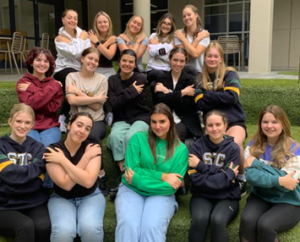
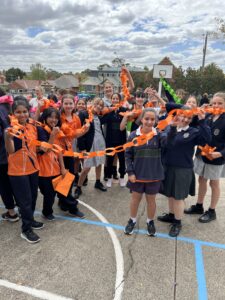
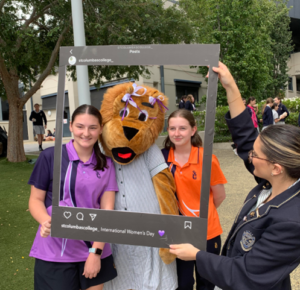


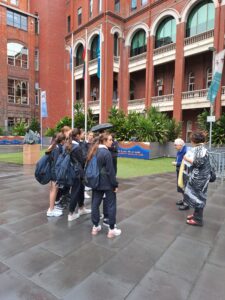






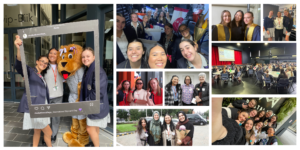

 Technology addiction and how to reduce technology dependence
Technology addiction and how to reduce technology dependence